When you're stepping into a new doctor's office, one of the first things they'll likely ask for is your medical history. It might feel overwhelming to compile this information, but it's crucial for ensuring you get the best care possible. Think of it as a way to share your health story, from past ailments to any ongoing treatments. Ready to dive into the details and make your next appointment smoother? Let's explore how to effectively outline your medical history!

Personal identification information
Personal identification information includes full name, date of birth, and address. Full name should be clearly stated, including any middle names for accurate identification. Date of birth, typically formatted as MM/DD/YYYY, assists in verifying age and relevant medical history specifics. Address, including street, city, state, and zip code, enables efficient communication and ensures accurate medical record creation. Contact number, preferably a mobile or direct line, is essential for quick access. Email address may also be included for electronic communication purposes. Insurance information, containing the provider name and policy number, is crucial for billing and treatment authorization. Emergency contact details provide additional security in case of urgent medical situations, facilitating immediate response.
Current medications and dosages
Current medications include Atorvastatin (20 mg daily) for cholesterol management, Metformin (1000 mg twice daily) for type 2 diabetes, and Lisinopril (10 mg daily) for hypertension. Additionally, patient takes Sertraline (50 mg daily) for anxiety and depression management. Over-the-counter supplements include Omega-3 fatty acids (1000 mg daily) for cardiovascular support and Vitamin D3 (2000 IU daily) for bone health. Patient reports adherence to prescribed medications with no missed doses, contributing to improved overall health metrics. Regular follow-ups every six months ensure medication efficacy and safety.
Major past medical events and surgeries
Patient medical history includes significant events such as appendectomy performed in 2015, a procedure addressing acute appendicitis at University Hospital, characterized by severe abdominal pain and fever. Additionally, a diagnosis of asthma made in 2018 after recurrent episodes of wheezing and dyspnea, with subsequent management involving inhalers and allergen avoidance measures. In 2020, the patient underwent knee arthroscopy due to a torn meniscus, a common injury resulting from sports-related activities, with rehabilitation efforts taking place at the local physical therapy center. Recent screenings indicated elevated cholesterol levels in 2023, prompting lifestyle modifications and dietary adjustments to mitigate cardiovascular risks.
Family medical history
Family medical history encompasses the health information of relatives that can influence an individual's susceptibility to certain conditions. It includes hereditary diseases such as diabetes mellitus and cardiovascular disease, prevalent in families with a shared genetic background. For instance, a family history of breast cancer could elevate a person's risk, necessitating routine screenings starting at an earlier age. Understanding patterns of illnesses like hypertension, asthma, or autoimmune disorders within immediate relatives can provide valuable insights. Notably, the prevalence of Alzheimer's disease, often appearing in later generations, highlights the importance of documenting these health backgrounds to facilitate proactive healthcare management and personalized treatment strategies.
Allergies and sensitivities
Patients may experience various allergies and sensitivities affecting their overall health. Common allergens include pollen from trees or grasses, resulting in seasonal allergic rhinitis, often referred to as hay fever. Food allergies, such as to peanuts or shellfish, can provoke severe reactions, including anaphylaxis, characterized by difficulty breathing and swelling. Environmental sensitivities, like dust mites or pet dander, may cause chronic respiratory issues or skin reactions. Medication allergies, particularly to antibiotics like penicillin, can lead to rashes or anaphylactic reactions, necessitating careful screening during medical history evaluations. Documenting these allergies and sensitivities is crucial for personalized treatment plans in healthcare settings.
Letter Template For Outlining Medical History To New Doctor Samples
Letter template of personal medical history for a new healthcare provider
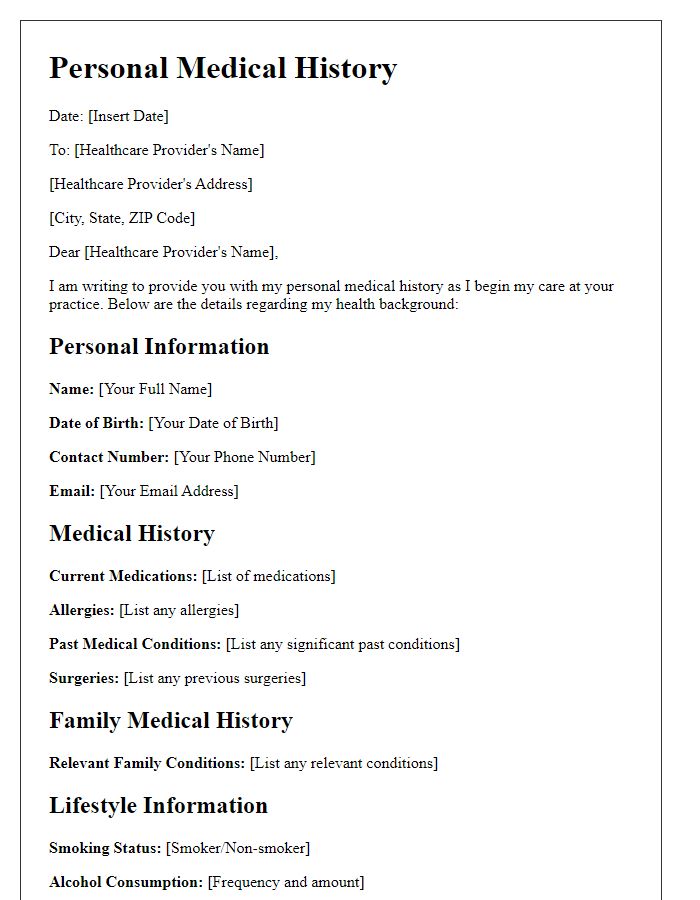

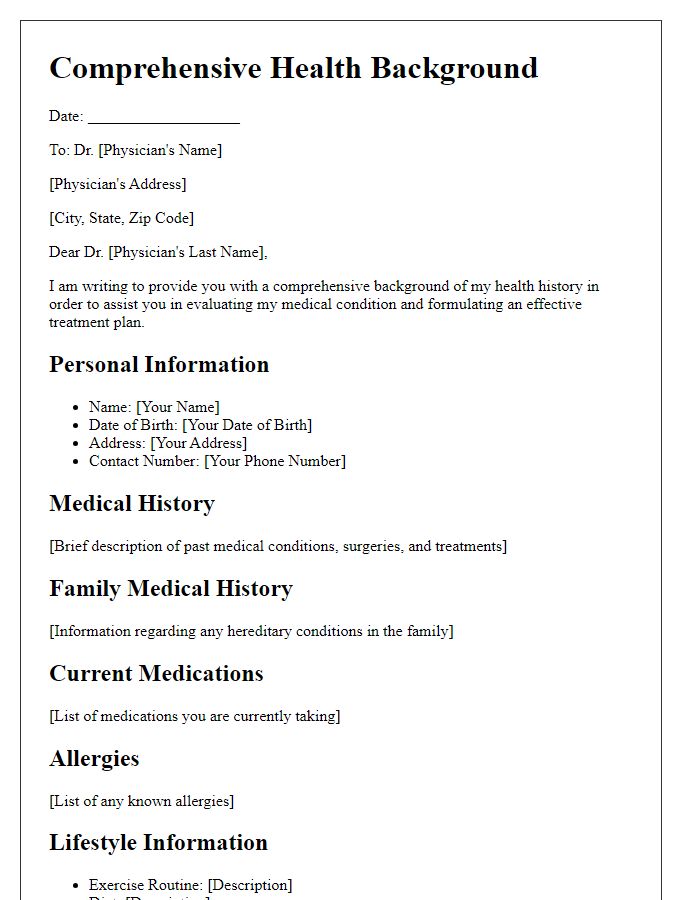
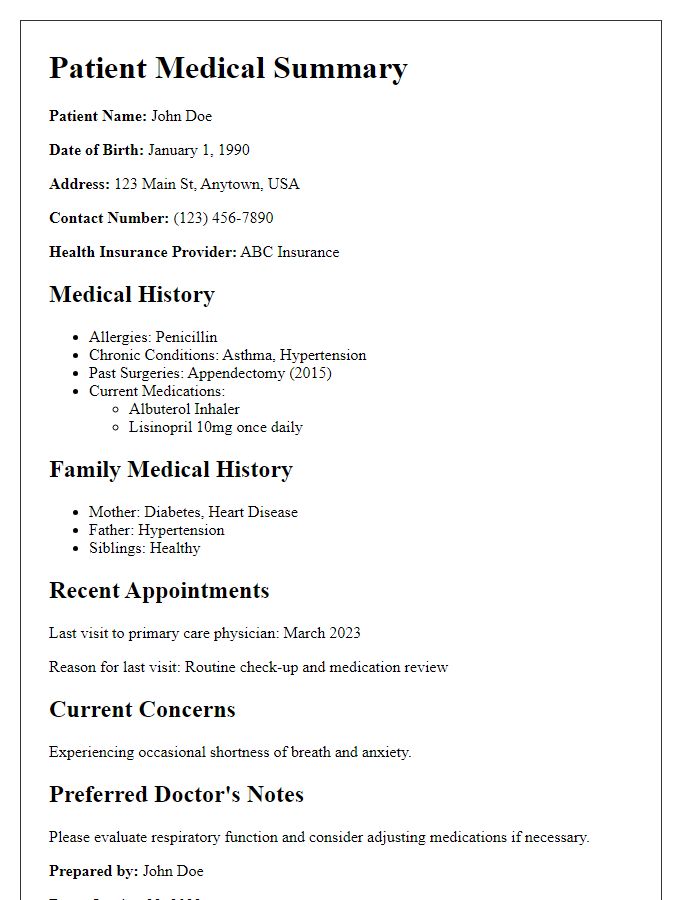
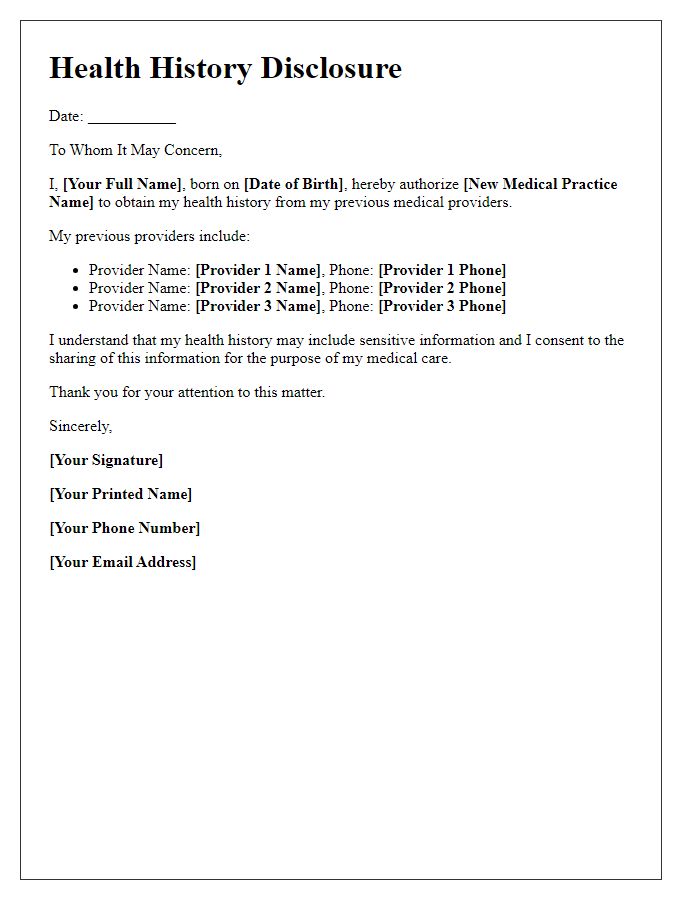
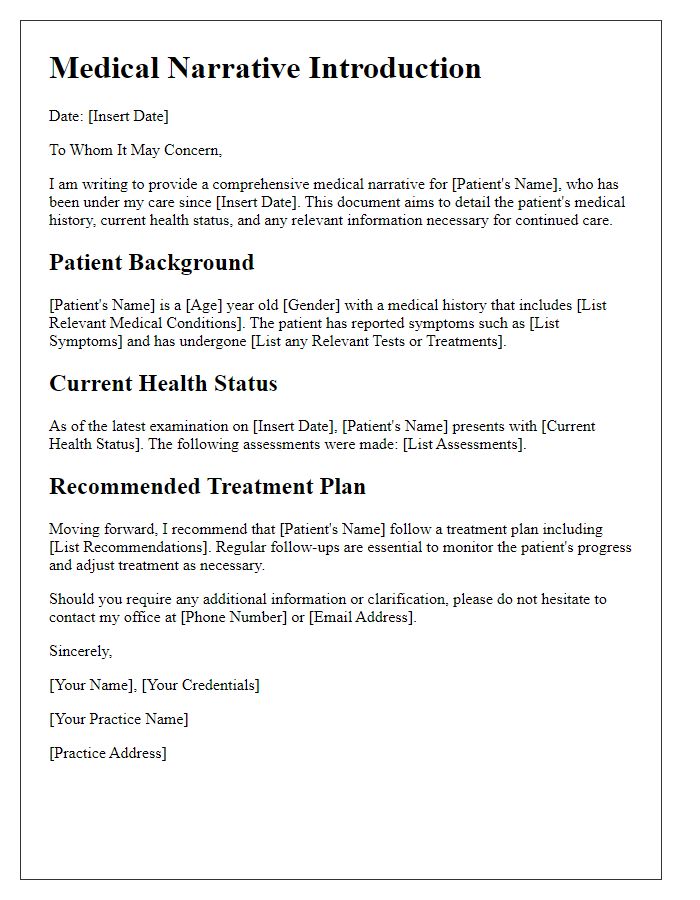
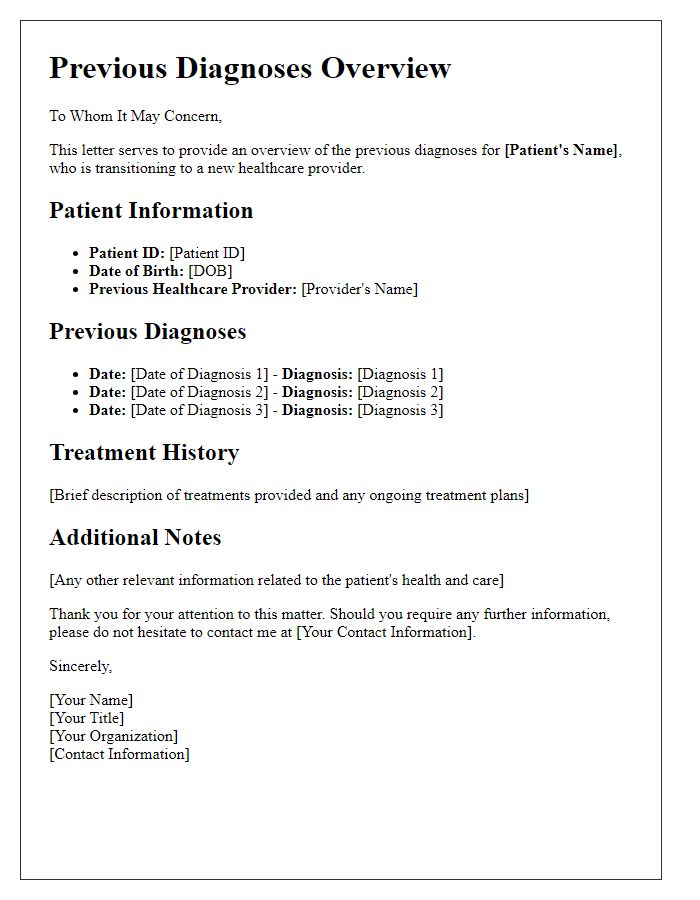
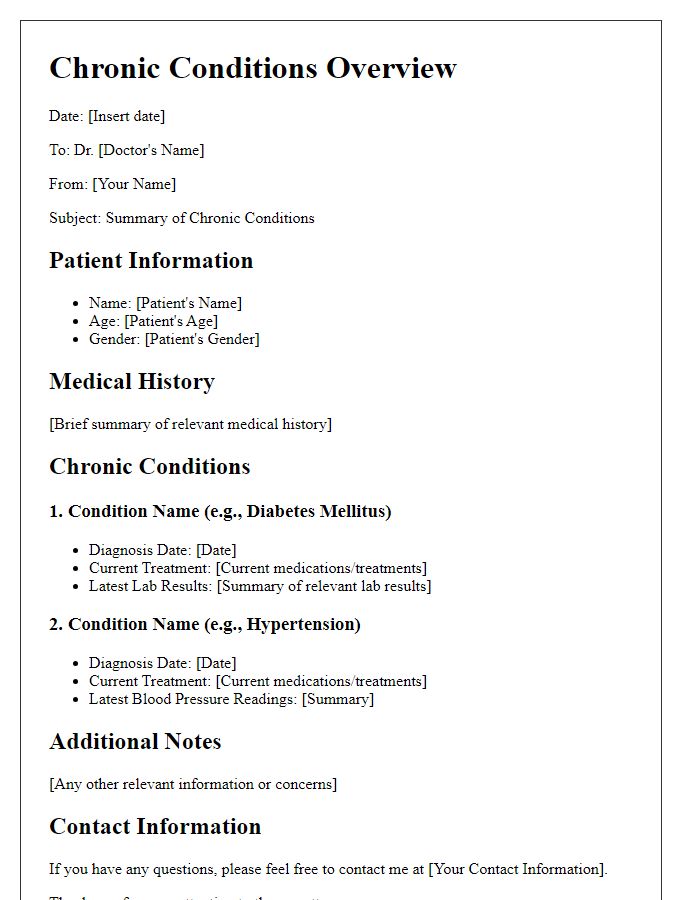
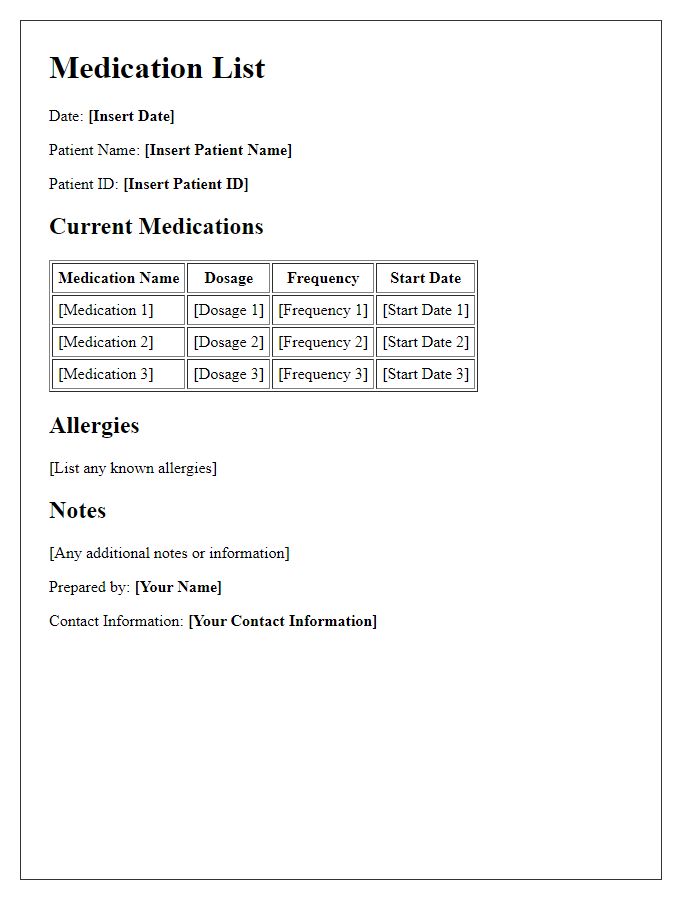
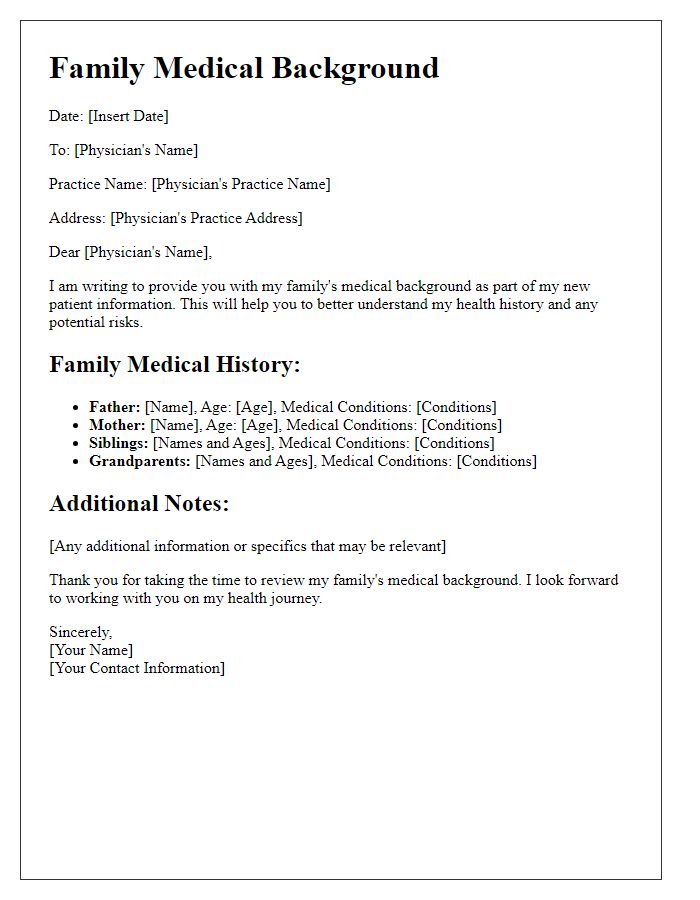
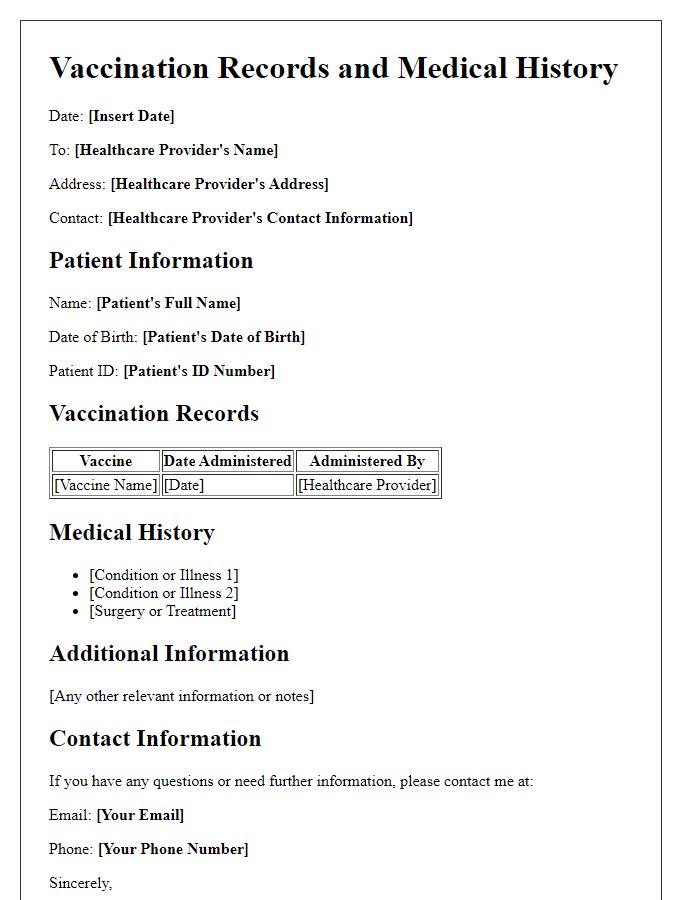


Comments